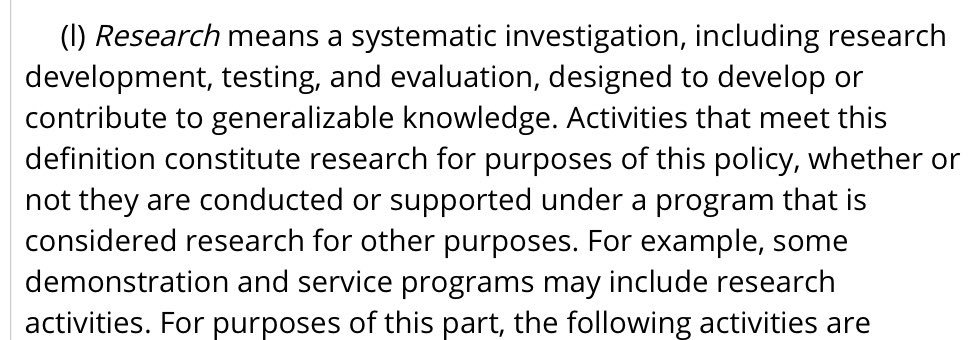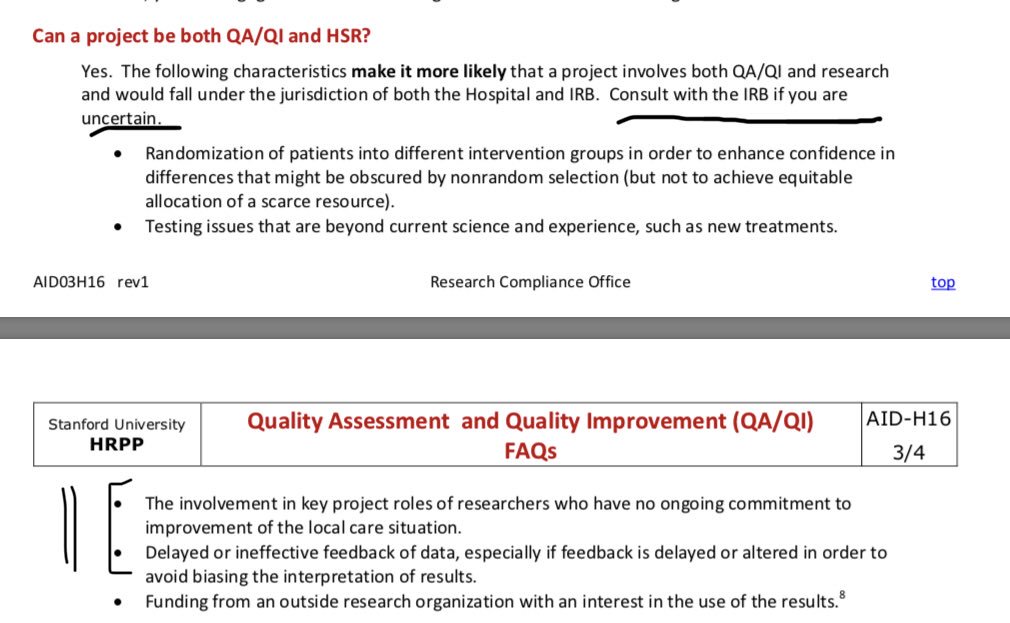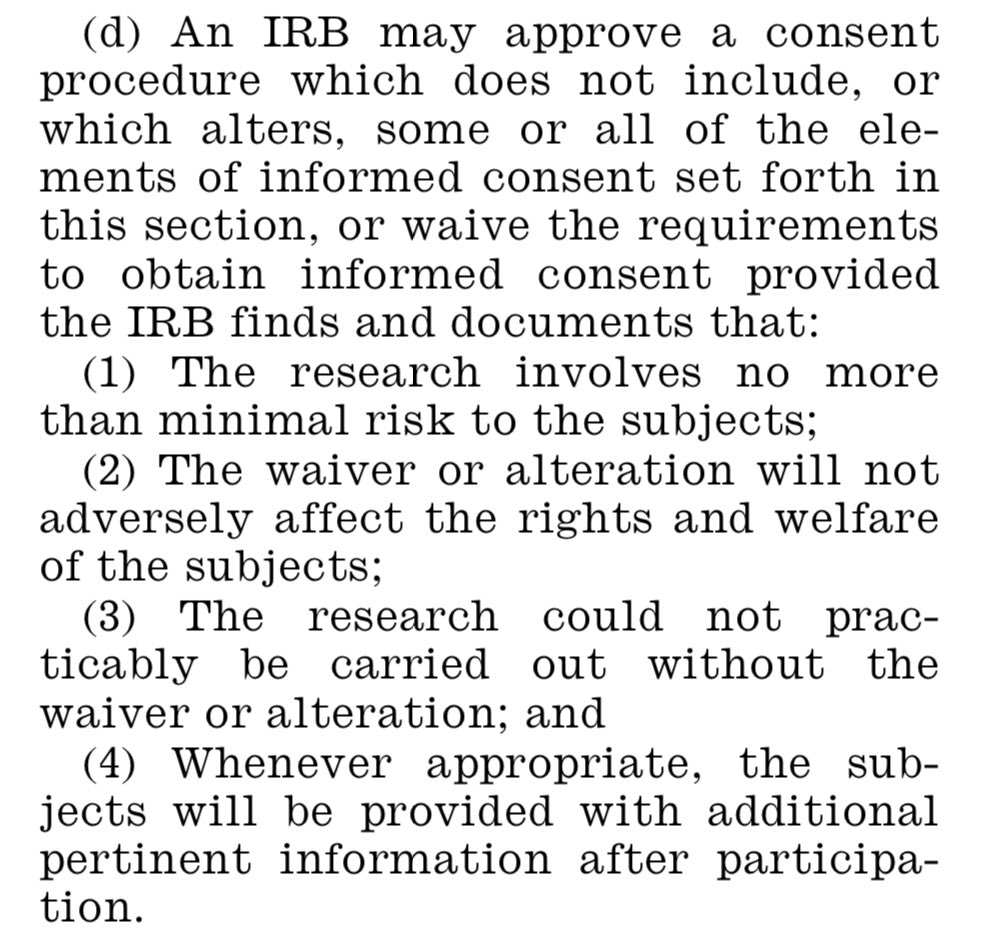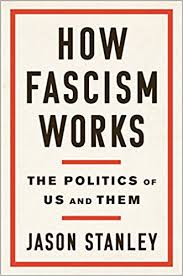1) What did PSU policy—which applies the federal Common Rule to all human subjects research (HSR) regardless of funding—require of Boghossian?
2) Is this good &/or consistent policy?
I’ll mostly address 1, w/a few comments re: 2








Get real-time email alerts when new unrolls are available from this author!
Twitter may remove this content at anytime, convert it as a PDF, save and print for later use!

1) Follow Thread Reader App on Twitter so you can easily mention us!
2) Go to a Twitter thread (series of Tweets by the same owner) and mention us with a keyword "unroll"
@threadreaderapp unroll
You can practice here first or read more on our help page!
